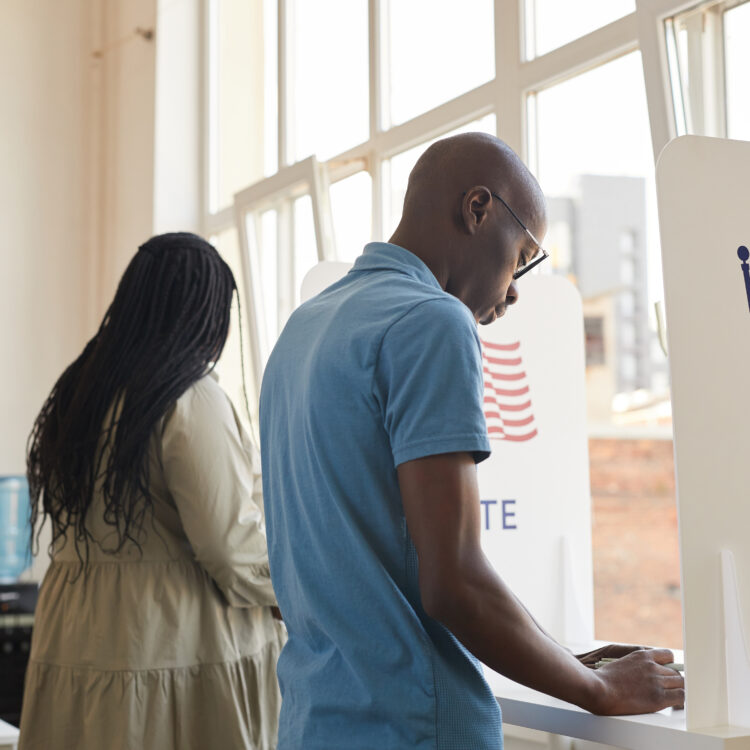Primary Elections and Sexual Violence

Voting matters—in both primary elections and general elections.
The decisions we make during primary elections determine which candidates stand in the general election and which people represent us at the local, state, and federal level. Despite their importance, participation in primary elections is generally much lower than in general elections. Many people don’t know that anyone who is eligible to vote in a general election can also vote in a primary election or how to do so.
We created this resource to fill in gaps and help folks participate in primary elections. The Q and A section below contains simple explanations of why primaries matter, information on how and when to vote, and some useful strategies to aid you in identifying candidates’ positions on issues related to sexual violence.
Common Questions
The primary election is an election that determines who will be on the ballot in the general election. Primary election candidates may be partisan or nonpartisan.
Partisan offices will list a political party next to a candidate’s name on the ballot. All state and federal offices—such as U.S. representative or Minnesota senator—are partisan offices. You can only vote for candidates from one political party. Minnesota does not have political party registration so you can decide when you vote which one of the parties you will vote for.
Nonpartisan offices will not list a political party next to a candidate’s name on the ballot. For example, county, city, township, and school board offices are nonpartisan. Nonpartisan offices will be listed on the back side of the primary ballot. You can vote for any candidate (Source: Minnesota SOS Website).
Primary elections are important because they determine who will stand in a general election. Not voting in a primary election means that you won’t get a say in the selection of candidates. It’s essential to use our right to vote at every level to express which issues matter to you and who you want representing you.
Primary elections can be especially important for partisan elections. In districts that usually end up represented by the same party, the primaries in effect select the winner of the election. Redistricting in 2020 may have made that even more true across the country.
-
- Ex: a DFLer has won the 5th District Congressional general election since 1963, therefore it is often assumed that whoever wins the DFL primary there will also win the general election.
The primary is on Tuesday, August 9. You can also vote ahead in person or by mail from June 24-August 8.
See the next common question for information about how to register or to check whether or not you’re registered. Note: if you are eligible to vote in Minnesota, you may participate in a primary election.
- You can vote in person on August 9th at your local polling station. Find your local polling station here.
- You can vote early, also known as absentee voting, a few different ways in Minnesota:
- You can vote early by mail. Learn how to request and return a mail absentee ballot here.
- Q: What if I have a confidential address through the Safe at Home program? Can I still vote by mail?
A: Yes. In fact, if you are enrolled in the Safe at Home program, all voting is done by mail absentee ballot. You can learn more about voting in the Safe at Home program and other safety precautions to consider when voting here. - You can vote early in person before August 9. You can vote early at your county election office, and you may be able to vote at your city office depending on where you live. Learn more about voting early in person here.
- You can vote early if you are serving in the military or living abroad. Learn more here.
The candidates we choose from when voting in general elections are a direct result of who we vote for in primary elections, and those candidates will make critical decisions about issues related to sexual violence.
You may already have a few political candidates in mind or may be looking at candidates in a particular political party as you decide who to vote for in the primary. When thinking about how to support sexual violence victims/survivors in the primary, here are a few things to consider:
- How has this candidate previously supported victims/survivors of sexual violence? Have they supported funding crime victim services in their jurisdiction (federal-level, state-level, city-level)? Have they written or supported legislation that supports victims/survivors, such as the Violence Against Women Act or supporting the right for victims/survivors to have abortions if they choose?
- If they are new to politics, what has their campaign said about sexual violence, if anything? If a candidate is new to politics and has not explicitly mentioned sexual violence in their platform, look to see if and how their campaign mentions women or women’s rights. While we know that sexual violence affects people of all genders, a political candidate’s stance on sexual violence related issues is often discussed with women’s rights. Political candidates who broadly support women’s rights (such as equal pay for equal work or the right to an abortion) may be more likely to support sexual violence victims’/survivors’ rights.
- What has the candidate said about comprehensive sexuality education? Comprehensive sexuality education helps prevent sexual violence, so political candidates who support this policy likely support other policies impacting sexual violence prevention and sexual violence victims/survivors. This is particularly important when thinking about school board elections.
- Learn more about primary elections in Minnesota. https://www.sos.state.mn.us/elections-voting/how-elections-work/primary-election
- For more information on safety while voting, see Safe at Home address confidentiality program: https://www.sos.state.mn.us/safe-at-home/ and https://www.sos.state.mn.us/elections-voting/register-to-vote/i-fear-for-my-personal-safety/
- Research the voting history of candidates who are currently or have previously been in office: https://ballotpedia.org/Main_Page or https://justfacts.votesmart.org/
- More information about the importance of primary elections: https://www.brookings.edu/blog/fixgov/2022/03/07/lessons-from-the-texas-primary-and-why-primaries-are-the-most-important-races-in-america/
